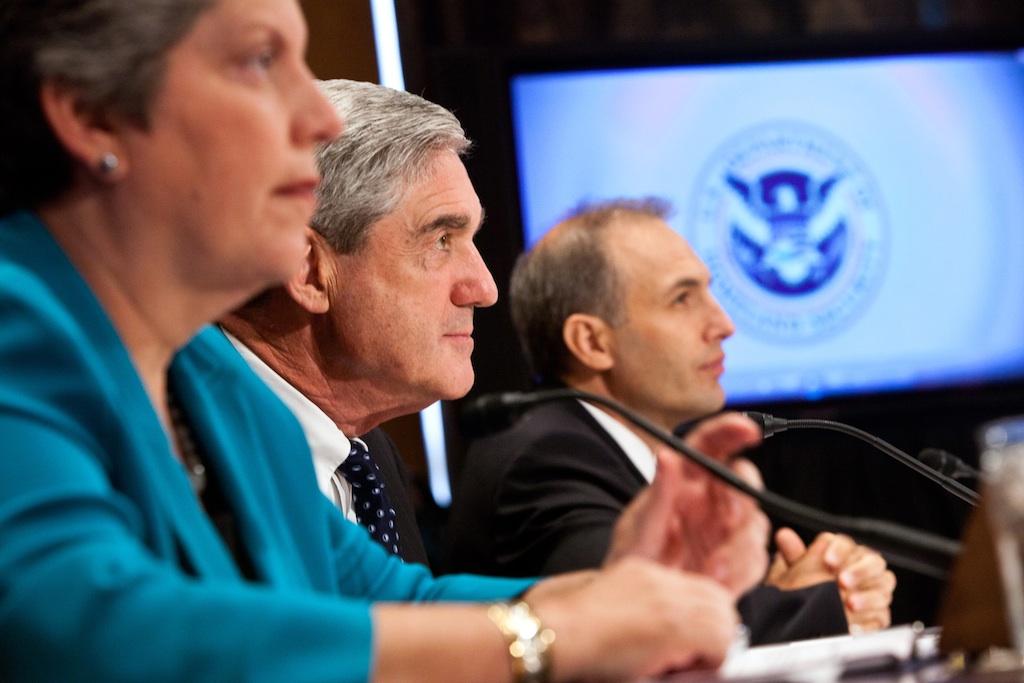Dept. of Homeland Security releases list of keywords it monitors online
(L-R) Janet Napolitano, Secretary of the Department of Homeland Security, Robert Mueller, director of the Federal Bureau of Investigation, and Director of National Intelligence Matthew Olsen testify at a hearing on Capitol Hill on September 13, 2011 in Washington, DC. The hearing focused on whether, ten years after the September 11 terrorist attacks, the country is safer than it was.
The US Department of Homeland Security has released a list of keywords and phrases it uses to monitor online websites and social networking sites to determine threats against the US, according to the UK's Daily Mail.
Released under The Freedom of Information Act, or FOIA, the words are included in the department's 2011 'Analyst's Desktop Binder' used by workers at their National Operations Center which instructs workers to identify "media reports that reflect adversely on DHS and response activities," according to the Mail.
The list includes obvious words choices such as: "attack," "Al Qaeda," "terrorism" and "dirty bomb" and some not so obvious picks such as "pork", "cloud", "team" and "Mexico."
More from GlobalPost: White House threatens CISPA veto
The list was posted by the Electronic Privacy Information Center who filed the FOIA request, before suing to obtain the release of the documents, according to Forbes.
EPIC wrote a letter to the House Homeland Security Subcommittee on Counter-terrorism and Intelligence saying the choice of words were "broad, vague and ambiguous."
As Forbes noted, the list provides new insight into how government analysts monitor the internet for terrorist threats but does not explain how the agency has access to the various search engines and social networks to monitor the specified keywords.
Forbes.com's Reuven Cohen suggested DHS might have a “special arrangement” with companies like Google, Facebook, Microsoft, Yahoo and Twitter to gain secure direct API access. That remains unconfirmed.
EPIC Executive Director Marc Rotenberg is scheduled to testify on the Foreign Intelligence Surveillance Act before the House Judiciary Committee at a hearing later this week regarding the FISA Amendments Act of 2008.
